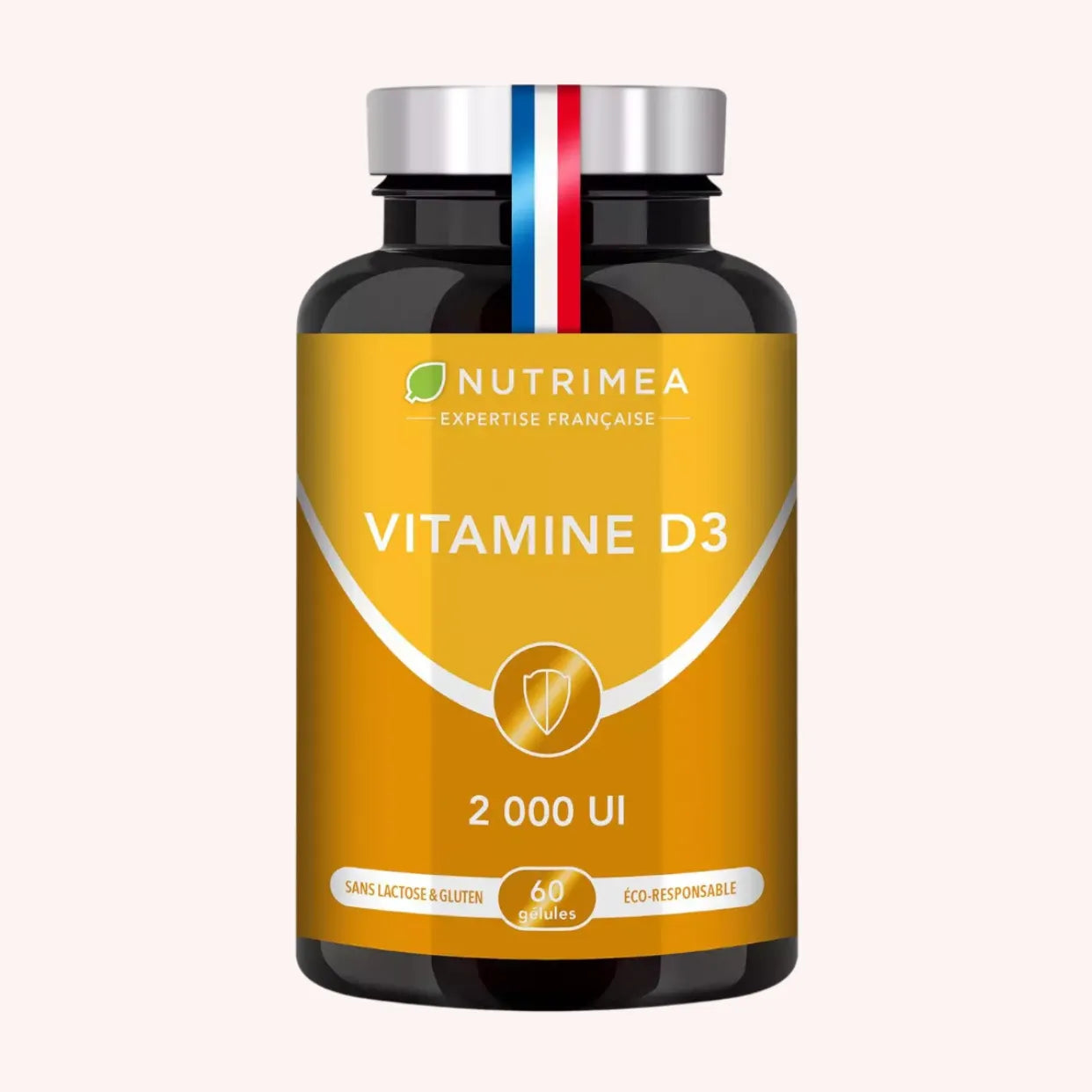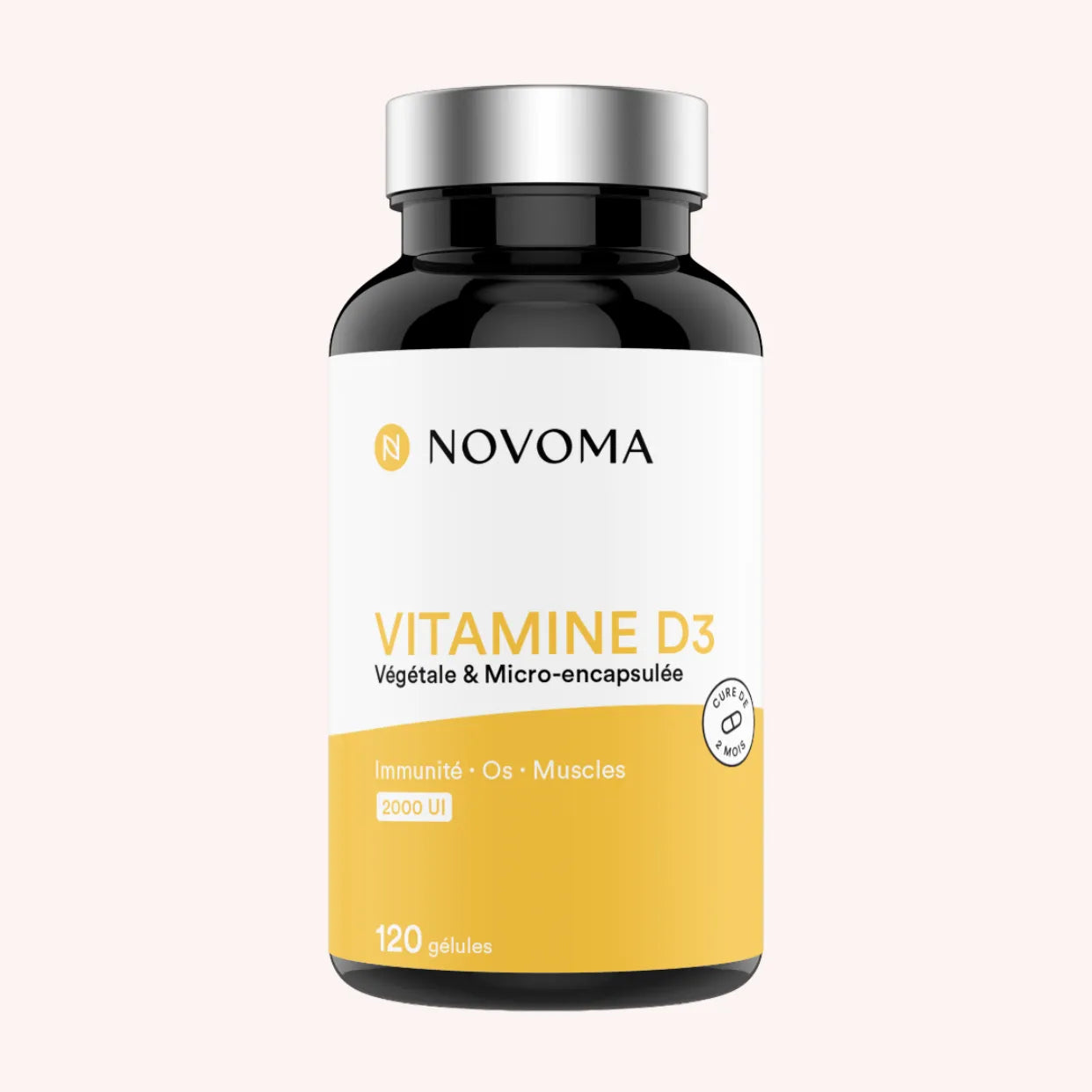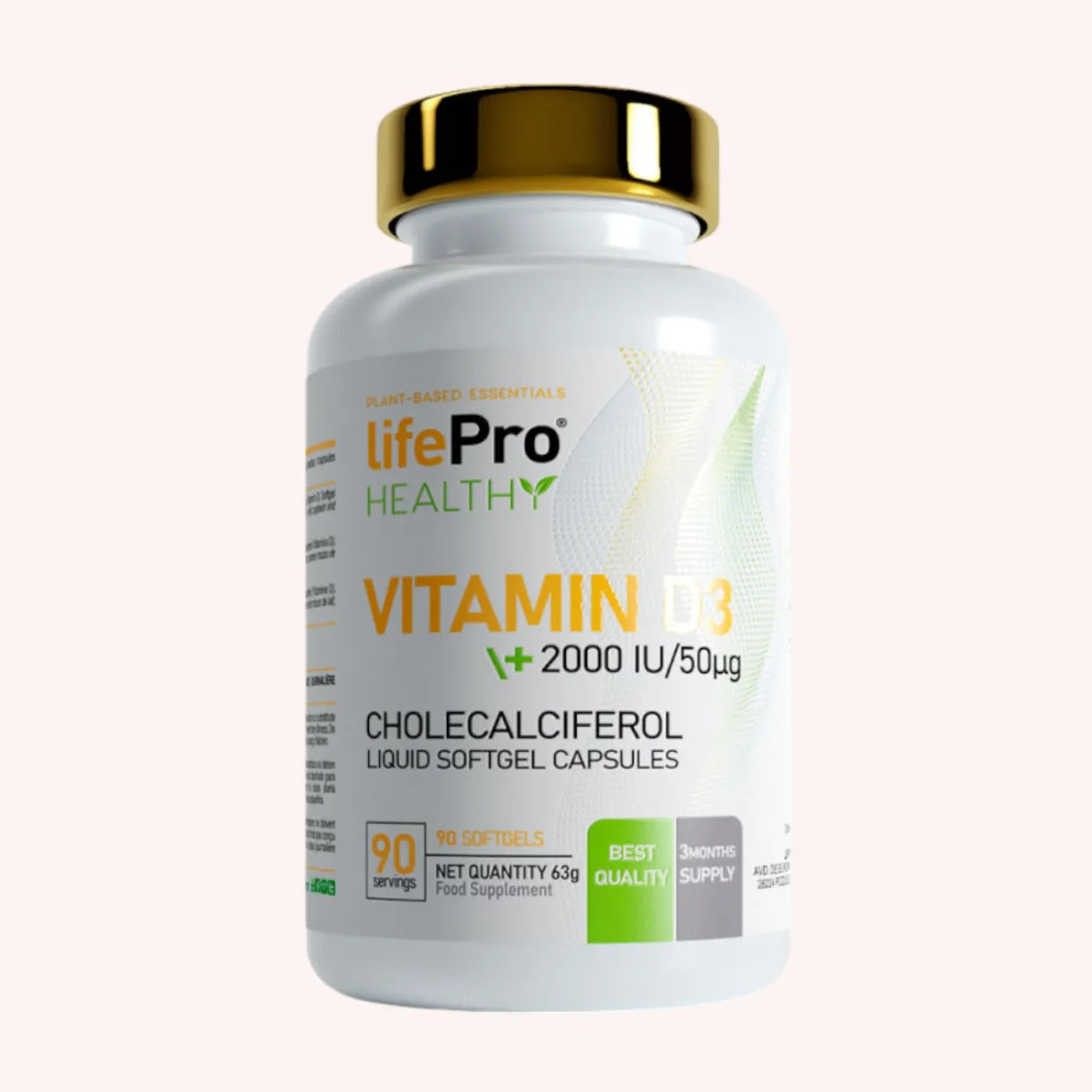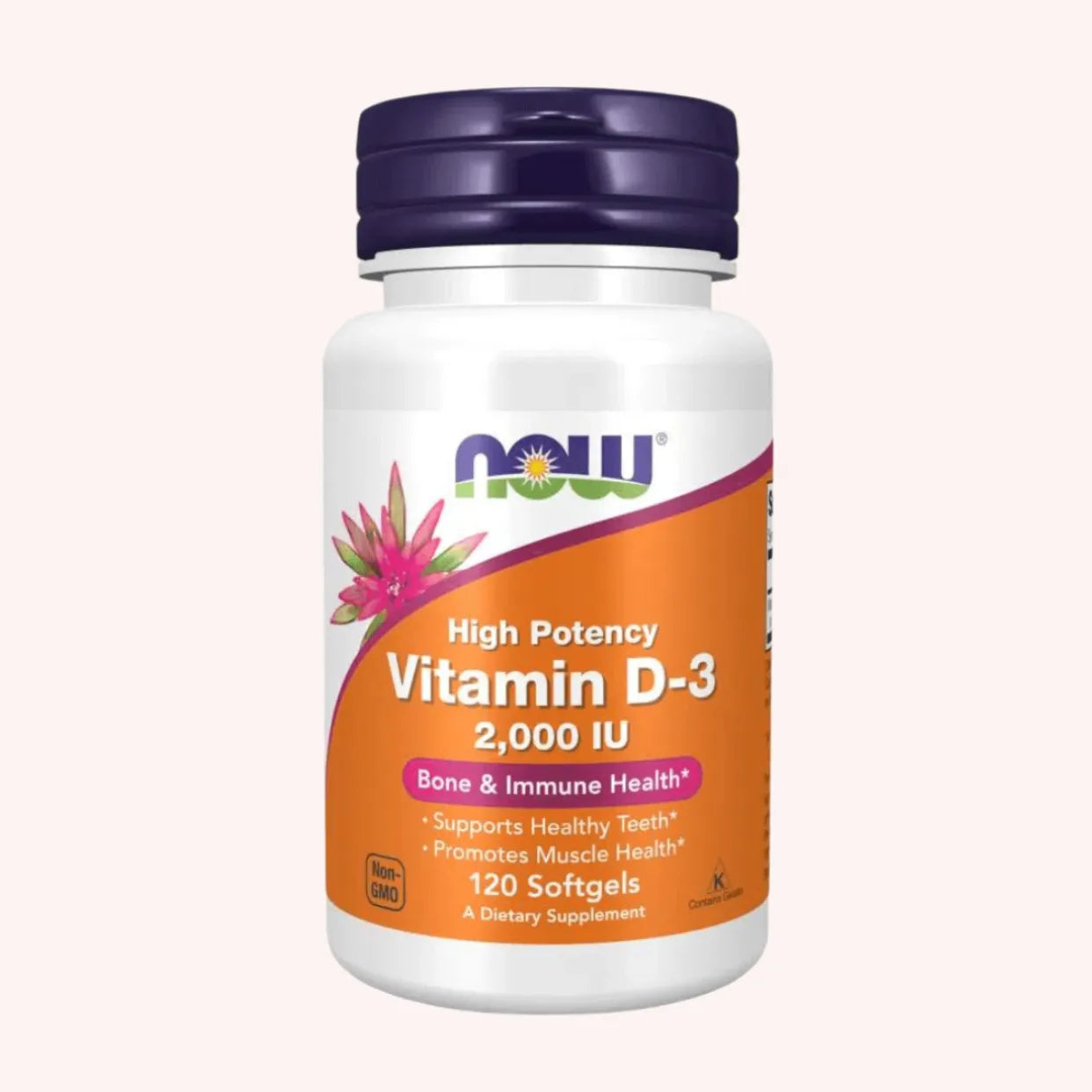Vitamin D, often referred to as the "sunshine vitamin," is more than just a vitamin. It is essential for many biological processes and is a valuable ally for your health, especially if you are an athlete.
That’s because this fat-soluble vitamin is essential for bone health, muscle growth, immune function, and many other aspects of human physiology. Here, we’ll explore in detail the benefits of vitamin D, its sources, the risks of deficiency, and how you can easily optimize your daily intake and improve your athletic performance.
Vitamin D, what is it and where to find it?

Definition and characteristics
Vitamin D is a fat-soluble vitamin that dissolves in fats and oils and acts as a hormone in the human body . It influences the activity of many bodily functions, including bone health , gene expression, cell growth, and the immune system .
Vitamin D exists mainly in two forms: D3 (cholecalciferol), produced by the skin during exposure to the sun, and D2 (ergocalciferol), present in certain plants.
Sources of vitamin D
Exposure to the sun
The primary source of vitamin D for most people is exposure to ultraviolet B (UVB) rays from the sun. Human skin synthesizes vitamin D when exposed to these rays, making it a natural and effective way to maintain adequate levels of this essential vitamin. About 10 to 30 minutes of sun exposure to the arms and legs, several times a week, is usually enough to prevent vitamin D deficiency . However, several factors can influence the amount of vitamin D produced by the skin, such as time of day, latitude, season, and skin type.
Sun exposure is most effective between 10 a.m. and 2 p.m., when UVB rays are most intense. Vitamin D production is also highest during the summer months, when the sun is higher in the sky. However, this method may be insufficient during the winter months or in regions with little sunlight, where UVB rays are not strong enough to trigger vitamin D synthesis. Additionally, people living at higher latitudes, with long, dark winters, are at particular risk of vitamin D deficiency due to low sun exposure .
Sunscreens, while essential for protecting skin from UV damage, can also reduce vitamin D production when applied in large amounts. Additionally, clothing that covers most of the body, time spent indoors, and cultural practices that limit sun exposure can also reduce vitamin D synthesis.
Food
Vitamin D can also be obtained through certain foods, although dietary sources are often limited. A varied and balanced diet can help maintain adequate vitamin D levels, but it is often difficult to meet daily requirements through food alone. Foods rich in vitamin D include:
- Oily fish (salmon, mackerel, sardines, tuna): These fish are among the best natural sources of vitamin D. For example, one serving of cooked salmon can provide up to 570 IU of vitamin D.
- Egg yolk: Although less concentrated in vitamin D than oily fish, egg yolk can contribute to daily intake, with around 40 IU per yolk.
- Vitamin D Fortified Dairy Products and Cereals: Many dairy products, such as milk, cheese, and yogurt, as well as some breakfast cereals, are often fortified with vitamin D to help fill nutritional gaps.
- Cod Liver Oil: This is an extremely rich source of vitamin D, with one tablespoon containing about 1360 IU. However, its strong taste may make its consumption less enjoyable for some.
- Liver: Organ meats, especially liver, are also good sources of vitamin D. Cooked beef liver, for example, can provide about 42 IU per 3-ounce serving.
Despite these dietary sources, it is often difficult to meet daily vitamin D requirements through diet alone, especially for people with dietary restrictions or specific eating habits that limit their intake of these foods.
Food supplements
For those who cannot get enough vitamin D through extensive sun exposure or a dedicated diet, there are several different types of health supplements . Vitamin D3 (cholecalciferol) supplements are particularly effective in maintaining adequate levels of this essential vitamin. Vitamin D3 is the form of vitamin D produced by the skin in response to sun exposure and is more effective than vitamin D2 (ergocalciferol) in raising and maintaining blood levels of vitamin D.
Vitamin D supplements are available in a variety of forms, such as tablets, capsules, liquid drops, and sprays. They offer a convenient and reliable solution for those who have difficulty getting enough vitamin D through other means. The dosage of vitamin D supplements can vary depending on individual needs, age, and weight. Typically, doses can range from 400 IU to 5,000 IU per day, but it is essential to consult a healthcare professional to determine the appropriate dose.
It is recommended to take vitamin D supplements with a meal containing fat, as vitamin D is fat-soluble and its absorption is enhanced in the presence of dietary fat. Additionally, some supplements combine vitamin D with other nutrients, such as vitamin K2, which works synergistically with vitamin D to support bone and cardiovascular health.
The benefits of vitamin D for athletes
Bone health
Vitamin D improves the absorption of calcium and phosphorus , two minerals essential for bone strength and density. For athletes, good bone health is essential.
Athletes who participate in high-impact sports, such as running, football or basketball, especially benefit from adequate levels of vitamin D to maintain strong, resilient bones.
Muscle function
Vitamin D plays a significant role in muscle function . It helps increase muscle fiber size and improves the sensitivity of neural receptors, which facilitates faster and more efficient muscle contraction.
Studies show that athletes with optimal vitamin D levels experience improved muscular performance, with increased strength and power, as well as a reduced risk of muscle injuries.
Recovery and reduction of inflammation
After intense exercise, muscles experience micro-tears that take time to heal. Vitamin D reduces inflammation by inhibiting pro-inflammatory markers. This speeds up muscle recovery and allows athletes to train more frequently with a better quality of recovery.
Quick and effective recovery is important to optimize performance and prevent long-term injuries.
Immune system
Vitamin D is also essential for supporting the immune system . A strong immune system allows athletes to maintain a rigorous training program without interruption.
Sleep quality
Quality sleep is vital for recovery and athletic performance. Vitamin D influences the areas of the brain responsible for sleep quality and duration. Adequate levels of vitamin D are associated with better sleep quality, directly impacting your overall performance.
Good sleep also contributes to better concentration and a reduced risk of injury.
Vitamin D deficiency
Vitamin D deficiency can have adverse effects on health and athletic performance. Signs of deficiency include muscle and joint pain, chronic fatigue, increased risk of fractures and injuries, and a weakened immune system .
Athletes at greatest risk of vitamin D deficiency are those who train primarily indoors, live in areas with little sunlight, or have darker skin, which synthesizes vitamin D less efficiently when exposed to sunlight .
Dosage and supplementation
It is mandatory to consult a healthcare professional before starting vitamin D supplementation . Requirements vary depending on age, gender, and level of physical activity. In general, recommended intakes for athletes range from 15 to 100 mcg per day, depending on their current vitamin D levels. Supplements are available in capsule, tablet, or liquid form and are recommended to be taken with a meal containing fat for optimal absorption.
Vitamin D is therefore an essential vitamin in the daily life of athletes, influencing bone health , muscle function , recovery, the immune system , and sleep quality. Particular attention should be paid to obtaining adequate levels of vitamin D, whether through sun exposure , diet, or supplementation.
By optimizing vitamin D levels , bodybuilders improve their performance and reduce their risk of injury, ensuring continued progress in their physical activities.
Sources:
- Esteban 2014-2016 – Chapter on biological dosages of vitamins and minerals. : https://www.santepubliquefrance.fr/les-actualites/2019/esteban-2014-2016-chapitre-dosages-biologiques-des-vitamines-et-mineraux-pas-de-deficit-important-ou-de-carence-a-grande-echelle
- Role of Vitamin D in Athletes and Their Performance: Current Concepts and New Trends. : https://pmc.ncbi.nlm.nih.gov/articles/PMC7071499/
- Performance improvement in sport through vitamin D – a narrative review. : https://pubmed.ncbi.nlm.nih.gov/36394723/
- Vitamin D and the Athlete : Emerging Insights. : https://pubmed.ncbi.nlm.nih.gov/25131312/
- The impact of 1-year vitamin D supplementation on vitamin D status in athletes : a dose–response study. : https://pubmed.ncbi.nlm.nih.gov/27460266/










